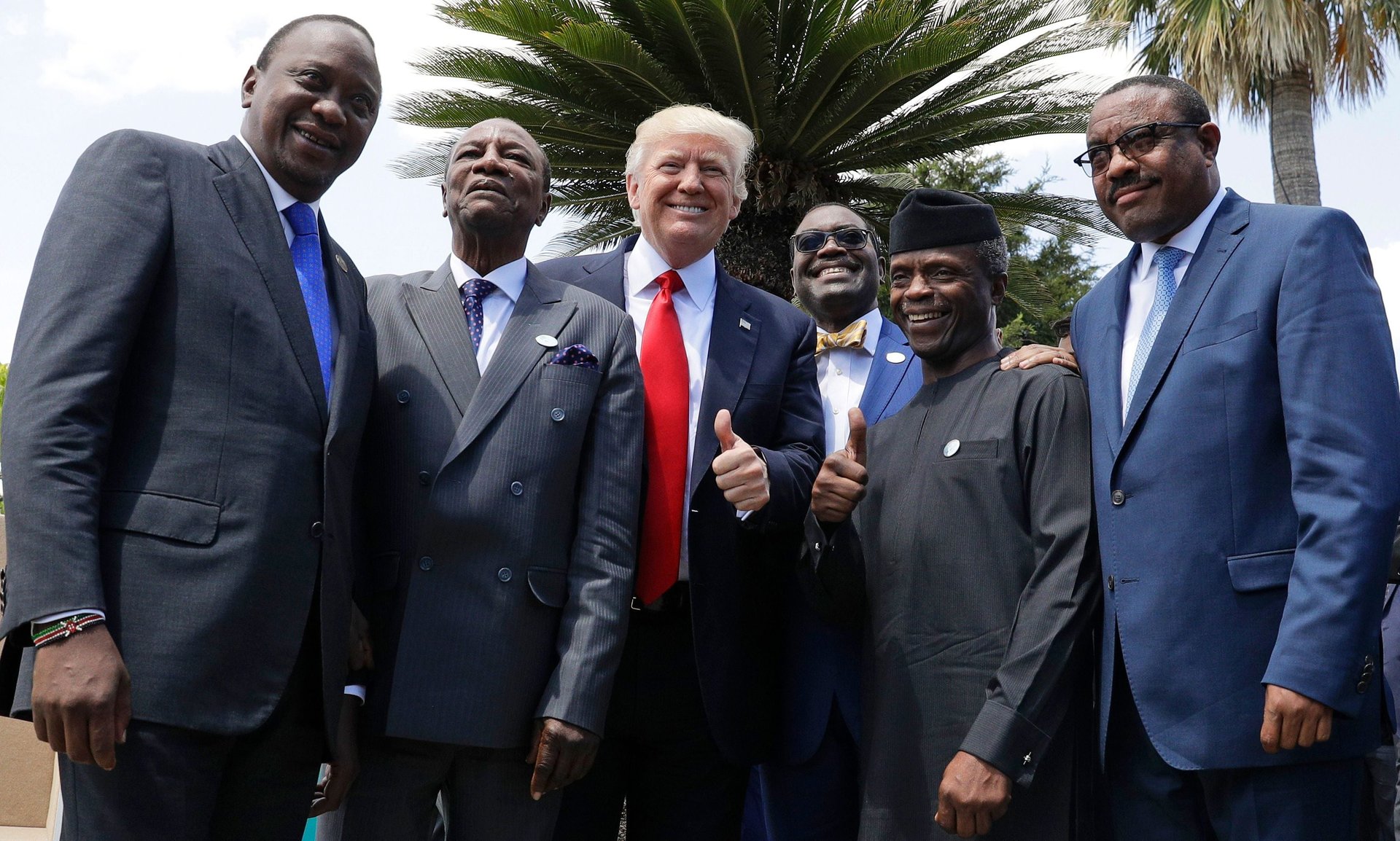A new $60 billion agency is the clearest sign the US is worried about China’s Africa influence
OPIC is dead. Long live OPIC.


OPIC is dead. Long live OPIC.
In the last few years of US president Obama’s administration, there were increasingly loud calls for the government to get rid of the Overseas Private Investment Corporation (OPIC), the development agency which encourages investment by US companies in Africa.
The problem, as the critics saw it, was the four-decades old agency had become “institutionally ill-suited to its mission and harms poor people around the world,” said a 2015 paper from CEI, a libertarian Washington DC think tank, which also claimed OPIC projects end up “enriching the politically connected.”
With US president Trump’s “America first” mantra it was completely unsurprising when the administration’s first budget in 2017 proposed essentially killing off OPIC.
But at the same time, development analysts and DC lobbyists have been pushing the US Congress to reform and improve the country’s approach to development finance. In an unexpected turn of events, the reformists won.
On Oct. 5, president Trump signed into law the Better Utilization of Investments Leading to Development (BUILD) Act, which does do away with OPIC, but by doubling its budget to $60 billion and giving it a new name, the US International Development Finance Corporation (IDFC).
Aside from the much bigger budget, the key change for most observers is that the new agency now has authority to make equity investments, something OPIC lacked and which many believe will make it a more competitive dealmaker. It’ll also be able to make deals and loans in local currency thereby saving investor currency exchange risk.
“Not only will it lead to more US investment in Africa, which will be a stimulus to economic development across the continent, but it makes US companies more competitive and reduces the risk in a growing market that is not well understood by American business,” writes Witney Schneidman, fellow, Africa Growth Initiative at Brookings Institution.
And regardless of Donald Trump’s anti-globalist rhetoric, it also brings some clarity to a widely ignored US-Africa policy, outside of security discussions.
So what changed the US government’s mind on this?
One word: China.
“Part of the motivation has been China which is very active in a lot of markets,” says Todd Moss, an analyst at the Center for Global Development and a long-time supporter for reform in the US development finance. “This is an attempt to modernize our foreign policy tools.”
Before now, the Trump administration had only ever expressed concern for seemingly naive African leaders who were being misled by China with what some call its “debt trap diplomacy.”
China is not making big overseas loans and investments “to help countries out, they’re in it to grab their assets,” Ray Washburne, the president and CEO of OPIC (who is expected to stay on at the new IDFC) told reporters last month in Washington DC.“They’re interested in industrial mines, we’re more interested in creating jobs to stabilize those economies,” he said.
The US is “engaged in the world,” Washburne said, it’s not pulling back to its own shores. With the new fund, it will be engaging in other countries it in a “businesslike manner” rather than giving aid
But even with this new US agency it won’t be as easy as it sounds. “The Chinese model is bigger and quicker, if you’re a government in Africa and want to build infrastructure before the next election you probably will still go with the Chinese,” Moss concedes.
While $60 billion is a lot of money from the US, it’ll be spent across the developing world including countries in Asia and South America. Last month, China pledged $60 billion towards development on Africa alone. But as our columnist Andrew Alli has written, the availability of more competition in terms of funding and expertise should be the ultimate benefit of China’s Africa presence. The more, the better for Africa. Heather Timmons contributed reporting.
Sign up to the Quartz Africa Weekly Brief here for news and analysis on African business, tech and innovation in your inbox